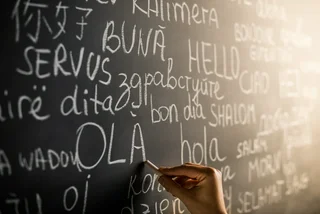Czech President Miloš Zeman and Education Minister Petr Gazdík agreed during a Wednesday meeting that sweeping changes to education reform are necessary.
Key among those changes is the need to reduce the volume of the curriculum, as well as update the exam process while placing more of an emphasis on lifelong learning, Gazdík told the press after his meeting with the president.
"We agreed that a reduction of content is necessary, that secondary school leaving exams as well as the system of entrance exams must change. Lifelong learning will be a must in the future," he said.
Previously, the Ministry of Education has said that it is committed to a complete overhaul of educational programs by the end of 2023.
Prior to the changes discussed with Zeman, Gazdík has mentioned the need for students to understand the material, rather than memorize things. He said the new government's vision for learning would create more space for teamwork and the development of pupils' creativity
Czech state schools have traditionally been criticized for outdated and rigid teaching methods which emphasize rote learning and memorization, as well as the lack of technology in the classroom, a deficiency that became particularly evident during Covid school closures and remote learning.
"Sixty percent of the children who start their education now are being prepared for professions we do not know yet," Gazdík said.
Zeman was critical of the planned change in the second foreign language that is mandatory at elementary school, Gazdík said.
AI Engineering Team Lead

Gazdíkk has clarified that while the second foreign language will still be taught and the schools will have to offer it, it will be an elective subject.
The ministry says by doing so it aims to improve the quality of language education, ensuring, for instance, that pupils with special needs will not be forced to attend second-language classes. Gazdík argued that these lessons often prove stressful for some students and hold their classmates back.
Critics of the change that relegating second languages to optional status could lead to a deterioration in teaching standards and that the proposed change represents proposed change as “a step backward for European goals.”
Gazdík and Zeman did not discuss the influx of Ukrainian children in Czech kindergartens and schools but the education minister said he would be present for an upcoming expert panel held by Zeman on the subject.
In an informal poll of 170 Expats.cz readers, 70 percent of respondents said that they would prefer to see both a reduced volume of work and more focus on imagination in the Czech classroom.












 Reading time: 2 minutes
Reading time: 2 minutes 



 Croatian
Croatian
 Slovenian
Slovenian
 Serbian
Serbian
 Russian
Russian
 Ukrainian
Ukrainian
 Finnish
Finnish

























